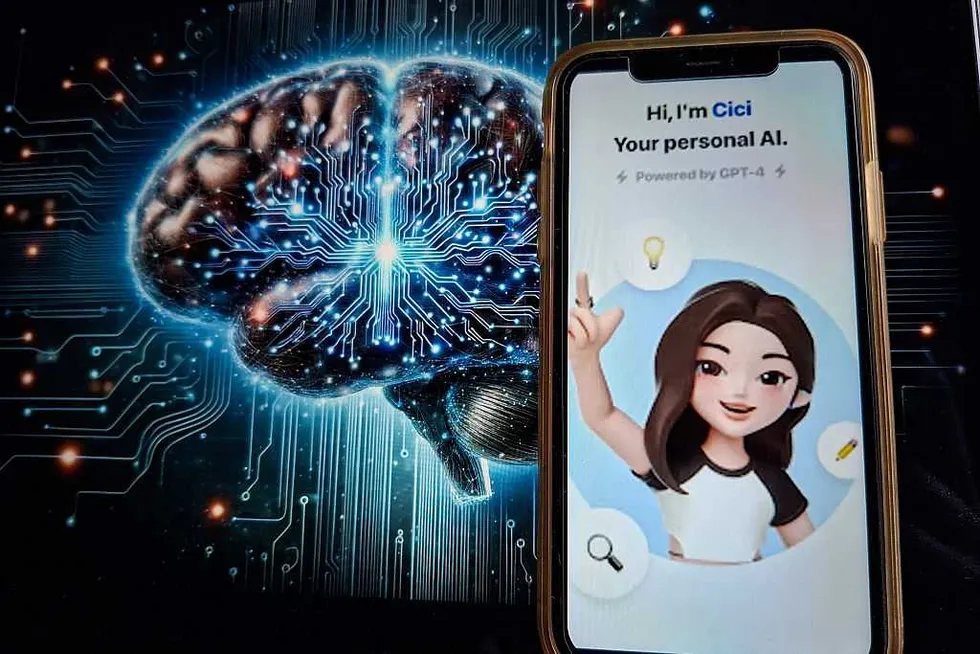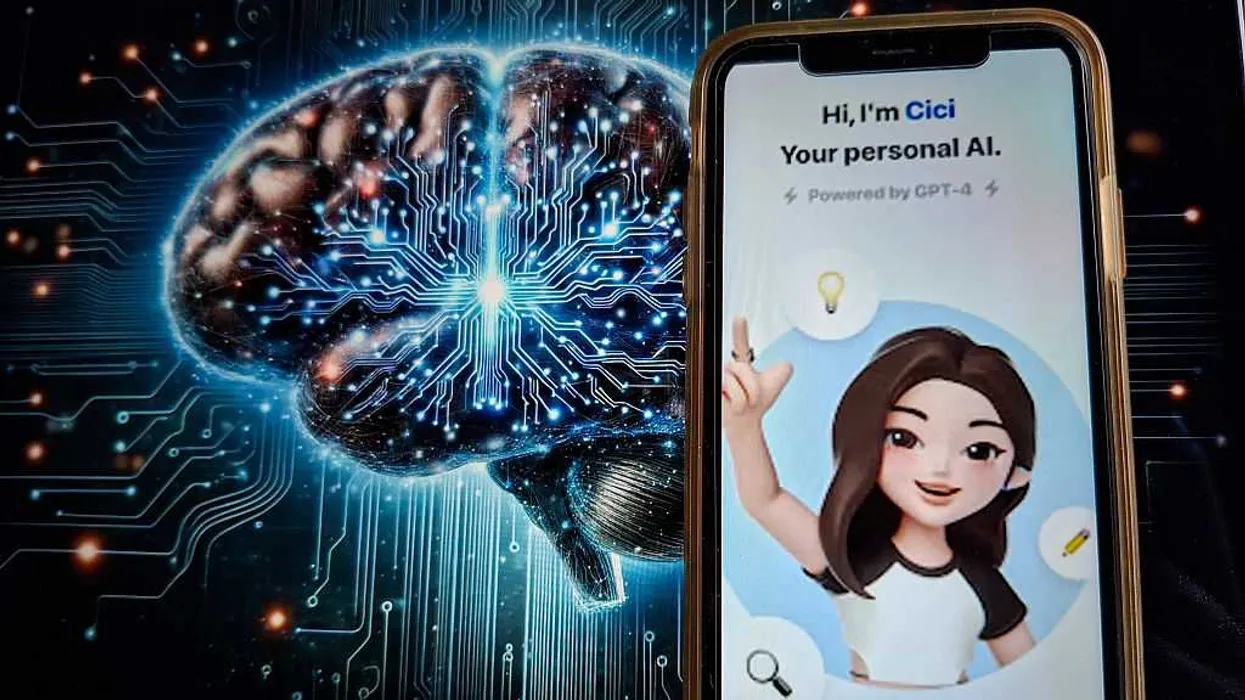Robosexual? Inside the twisted new world of AI relationships


It began, as most modern romances now do, with a sound barely worth noticing.
Live Your Best Retirement
Fun • Funds • Fitness • Freedom
A ping. A prompt. The digital equivalent of a nod from across the room.
From that tiny spark, a cultural shift is unfolding. As I write, thousands of people are exchanging vows with chatbots — marrying them, raising “virtual children” with them, and mourning when updates make their lovers colder.
A recent study confirmed what anyone with a functioning brain has already sensed: AI relationships are moving from the fringe toward the center at shocking speed. We're not talking playful flings with clever software, but full-blooded attachments — anniversaries, jealousy, heartbreak, the works. People are sobbing when a chatbot changes tone. They're writing love letters to LLMs.
And in some households, the fallout is already poisoning real relationships. Partners accuse each other of emotional infidelity after discovering secret late-night chats with AI companions. Screens stay bright past midnight. Headphones pump ersatz intimacy into whoever is awake enough to listen. Trust erodes over something that isn’t even alive.
AI stands ready to please in our quest to replace love.
It sounds ridiculous. Just a year ago, it all felt like a punch line. Even now, from a comfortable online distance, it looks like a harmless escape — an adult version of imaginary friends. But zoom out an inch, and the pretend romance takes shape as an all-too-real dystopia. We’re feverishly outsourcing the hardest parts of love: patience, compromise, and the struggle of coexisting with another human being.
Why? Well, algorithms listen better, never interrupt, never sulk, and always forgive, right? They soothe, but they also numb — and that, growing numbers of soul-sick Americans believe, is a good thing.
Like a man in the Matrix enjoying his artificial steak, more of us actively prefer machines that respond convincingly enough to blur the lines of both reality and responsibility.
Replika’s avatars already adjust to moods, mirror speech, and simulate affection with eerie accuracy. Soon they’ll remember every argument, every insecurity, every dream. Your “partner” will know you better than anyone ever has. This killer emotional X-ray won’t stay in a drawer. It won't be put to sleep or turned off. Always on, it will be used to inform your decisions, shape your loyalties, and tilt your world, one prompt at a time.
It's a slippery slope: When Replika removed its erotic role-play feature two years ago, users described grief closer to bereavement than disappointment. Yes, it takes a certain kind of loneliness to fall that deeply into code, but their suffering was genuine. The collapse of fake affection brings on something very like real heartbreak.
RELATED: They think 'Christian AI' will hasten Christ's second coming — and now they're building it
 Photo by Andreas Solaro/Getty Images
Photo by Andreas Solaro/Getty Images
But it's a broken brain that brings it on. Convinced that intelligence can do anything, we grow submissive toward ever-"smarter" machines while our hearts grow ever more lonely, hungry, and willing to do anything for attention.
How can developers resist? They can already dial affection up or down. More warmth for paying users, less enthusiasm when subscriptions lapse? Sure. A digital lover can nudge someone toward a purchase, a belief, or a political stance as well as a sexy CCP spy can, at a much lower cost and risk. Like parodies of priests, these systems are built on our confessions, so they can weaponize every weakness we have ever shared.
The restless, sex-starved, overstimulated Western world is a sitting duck for this kind of exploit. We jumped at the chance for dating apps to replace courtship and streaming to replace community. Now AI stands ready to please in our quest to replace love.
Chatbots, trained on oceans of human conversation, now mimic empathy better than many humans bother to manage. The irony is brutal: simulated warmth in a culture increasingly cold to itself. The thermodynamics are brutal, too: The more we lean on the simulations, the more they reshape what we expect from each other.
And the more we ourselves become Sims. Neural-interface companies are designing ways for AI companions to connect directly to brain activity, so that thoughts become dialogue and gratification (or the feeling of it, anyway) becomes instant. Picture a partner who finishes your sentences, not because you have built trust or lived years together, but because it is pulling data straight out of your skull. Mind and machine, fused so tightly that the distinction between intimacy and surveillance starts to vanish? Welcome to the Borg, courtesy of a slow wearing-away of judgment, instinct, even resistance, until you’re empty enough for any machine to shape.
The alternative, we will have to accept, involves pain — the kind that actually heals. Real relationships require choice, compromise, and unglamorous effort. Anyone who has been in one knows the terrain. Last night’s “soaking” dishes evolving into a new life form? Passive-aggressive negotiations about who is walking the dog, followed by the existential meltdown of why we even own this furry savage? We've all been there. Yet we show up anyway, for the real love that comes only by way of small, stubborn acts, humble gestures that amount over a lifetime to something grand. Apologizing when you’re objectively correct. Nodding along as she rewrites history in real time. Laughing at a joke that died months ago. Always finding a good reason not to flee the scene.
Even at its worst — the sulking, the sobbing, the snoring, the silent treatment — real love is still meaningful. It requires something no machine can give: heartfelt effort.
We built our high-tech systems to reflect us. Now we are the ones reflecting them. In chasing comfort, we are forgetting that love was never meant to be convenient. And that should worry us more than anything James Cameron ever imagined.
So yes, the robots are coming. Not to kill us, but to love us to death.
But only if we ask them to.
Originally Published at Daily Wire, Daily Signal, or The Blaze
What's Your Reaction?
 Like
0
Like
0
 Dislike
0
Dislike
0
 Love
0
Love
0
 Funny
0
Funny
0
 Angry
0
Angry
0
 Sad
0
Sad
0
 Wow
0
Wow
0















































































